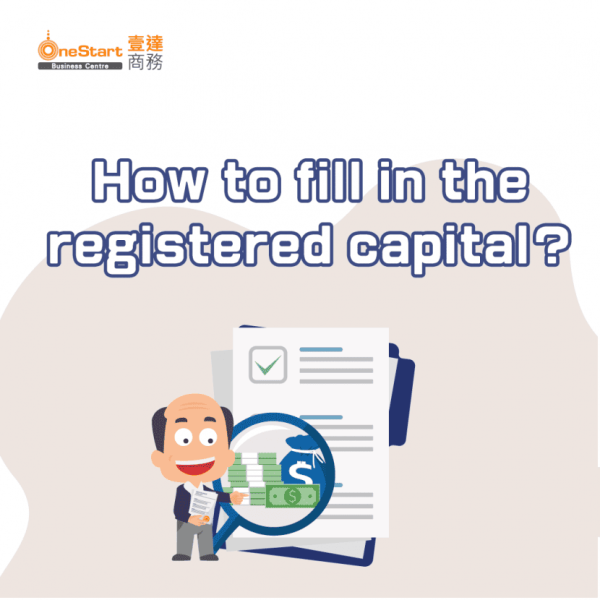Related Articles:
Should an Online Store Choose a Limited Company or an Unlimited Company?
When to File Taxes? Decoding the Hong Kong Company Tax Filing Schedul
Contents |
When establishing a limited company in Hong Kong, many entrepreneurs are puzzled by the “Registered Capital” section: How much should be set? Does it need to be actually deposited? Will it affect future operations? This guide will comprehensively explain the concept of registered capital for Hong Kong limited companies, answering common questions from entrepreneurs to help you navigate the company application process more smoothly.
1. What is Registered Capital?
Registered Capital is the total amount of shares stipulated when the company is established, i.e., the capital shareholders commit to investing in the company.
Registered Capital vs. Issued Share Capital vs. Paid-up Capital
Registered Capital: The total number and amount of shares a company can legally issue.
Issued Share Capital: The actual number of shares issued to shareholders.
Paid-up Capital: The actual amount of money paid by shareholders.
For example, if a company sets a registered capital of HK$10,000 (1,000 shares, HK$10 per share) but only issues 100 shares (HK$1,000), the company’s issued share capital is HK$1,000, and the remaining HK$9,000 is unissued.
Can Registered Capital be Changed?
Yes, a company can increase its registered capital by submitting an “Application to Increase Share Capital”, but this requires government fees and shareholder approval.

2. Standards for Setting Registered Capital
When registering a company, entrepreneurs need to decide on the registered capital. Here are some common considerations:
How Much Registered Capital Should General Entrepreneurs Set?
Minimum Capital Requirement: According to the Companies Ordinance (Chapter 622), all local companies with share capital adopt a no-par value regime, abolishing all minimum registered capital requirements.
General Enterprises: Most businesses set HK$10,000 for basic operational needs.
Companies Planning to Seek Investors: May set a larger amount (e.g., HK$100,000) to show financial strength.
Legal and Compliance Requirements
When setting registered capital, it must comply with the Companies Ordinance and relevant regulations:
Shareholder Structure: Can choose to have all shares held by a single shareholder or multiple shareholders.
Registered Capital and Share Transfers
- Company shareholders can change their shareholding ratio through share transfers.
- Share transfers may be subject to Stamp Duty.

3. Frequently Asked Questions
Q1: Does Registered Capital Need to be Deposited in a Bank?
A: No. Registered capital is merely the authorized capital amount a company can issue, and it does not need to be actually deposited in a bank.
Q2: If the Registered Capital Set is Too Low, Can it be Increased Later?
A: Yes. A company can increase its registered capital by submitting an “Application to Increase Share Capital”, but this requires shareholder approval and payment of associated fees.
Q3: Is There a Risk in Setting a High Registered Capital?
A: There is some risk. Registered capital represents the shareholders’ commitment to the company. If the company is dissolved, shareholders must bear limited liability for the company’s debts. Therefore, it is advisable to set a reasonable and bearable amount.
Q4: Do Foreign Companies or Investors Have Special Requirements for Registered Capital?
A: Foreign companies or investors in Hong Kong have no special requirements for registered capital. Foreign companies can set registered capital based on their business needs and plans.
Q4: Is Registered Capital Related to Company Strength?
A: Registered capital does not equate to actual company funds and does not need to be deposited in a bank. However, some investors or banks may be concerned about the total capital amount. Therefore, if planning to apply for bank loans or attract investment, a higher capital amount may help enhance the company’s image.

4. Conclusion
How to Decide Your Registered Capital?
- Small Enterprises: Can set HK$10,000 to meet basic operational needs.
- Companies with Capital Increase Needs: If planning to attract investment, can set a larger amount (e.g., HK$100,000).
- Not Recommended to Set Excessively High Registered Capital: To avoid increasing shareholder liability during company dissolution.
There is no “standard answer” when setting registered capital. The most important thing is to make decisions based on company size, development plans, and risk tolerance, ensuring a stable financial structure that meets long-term goals.
If you have other questions about setting up a limited or unlimited company, feel free to consult OneStart Business Center. We provide comprehensive support for entrepreneurs, including company formation, acting as company secretary, accounting auditing, tax filing, serviced and virtual office services, handling all tedious business matters for you, allowing you to focus on expanding your business. Want to start immediately, feel free to call 3575 6888, or via WhatsApp to learn more from OneStart Business Consultants.

















